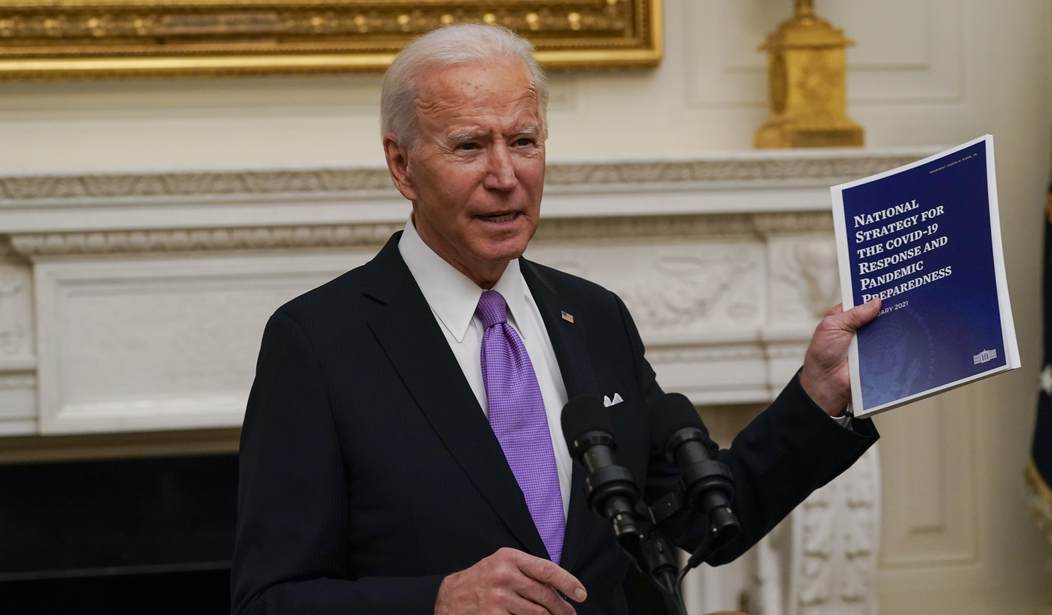One of President Joe Biden's economic advisers, Jared Bernstein, on Sunday claimed the American people have no interest in how the next Wuhan coronavirus relief package is passed or what's in the package.
"The president has consistently said three things: one, he is absolutely willing to negotiate; two, [Biden's] plan is scaled to have the punch to finally put these dual crises behind us, to meet the challenge of vaccine distribution, of virus control, and meeting the economic relief that is so urgent in this moment," Bernstein explained. "The cost of inaction in this moment is so high. Part three, as I mentioned, a willingness to negotiate with Republicans. ... Right now we're in a position where delay and inaction are the enemy of moving forward."
"Look, the American people really couldn’t care less about budget process, whether it’s regular order, bipartisanship, whether it’s filibuster, whether it’s reconciliation," he said. "They need relief and they need it now."
According to the economic adviser, if Congress doesn't act to quickly pass Biden's $1.9 trillion "American Rescue Plan," the country will sustain a loss of four million jobs by the end of the year.
"We risk taking a year longer to get full employment. Kids who are out of school every year, that costs their lifetime earnings north of five percent. That's a permanent ding on their ability to prosper throughout their lives," Bernstein said.
Recommended
To make matters even worse, Bernstein said he "rejects" the idea that Biden's climate change actions, including killing the Keystone Pipeline, put tens of thousands of Americans out of jobs when millions of Americans are unemployed. Instead, he said Americans would soon see the benefits of a "clean energy industry."
"Not only are there many more jobs in the climate agenda – and this will be more part of the recovery act that's coming later than the rescue plan – but this is something where the market is already moving in this direction," the adviser said. He cited GM's decision last week to shift away from gas-powered vehicles as a prime example.
"This is us really picking up and trying to amplify where the market is going anyway. It's a walk and chew gum moment," Bernstein said. "... I firmly believe this a pro-growth plan. It also has to occur as we take the steps to finally get to a robust recovery where we can start building our clean energy industry."
Of course, Bernstein's solution to get those 11,000 Keystone Pipeline jobs back is by passing Biden's American Rescue Plan.
Under Biden's plan, individuals making $75,000 or less and couples making $150,000 or less would receive $1,400 per person in direct cash payments. Ten GOP senators created their own proposal, which would offer more targeted payments. Under their plan, individuals making $50,000 or less and couples making $100,000 or less would receive $1,000 per person in direct cash payments. Both plans keep the extended federal unemployment benefits and provide funding for vaccine distribution.
Biden's plan would also increase the federal minimum wage from $7.25-an-hour to $15-an-hour., which is one major concern critics have.

























Join the conversation as a VIP Member